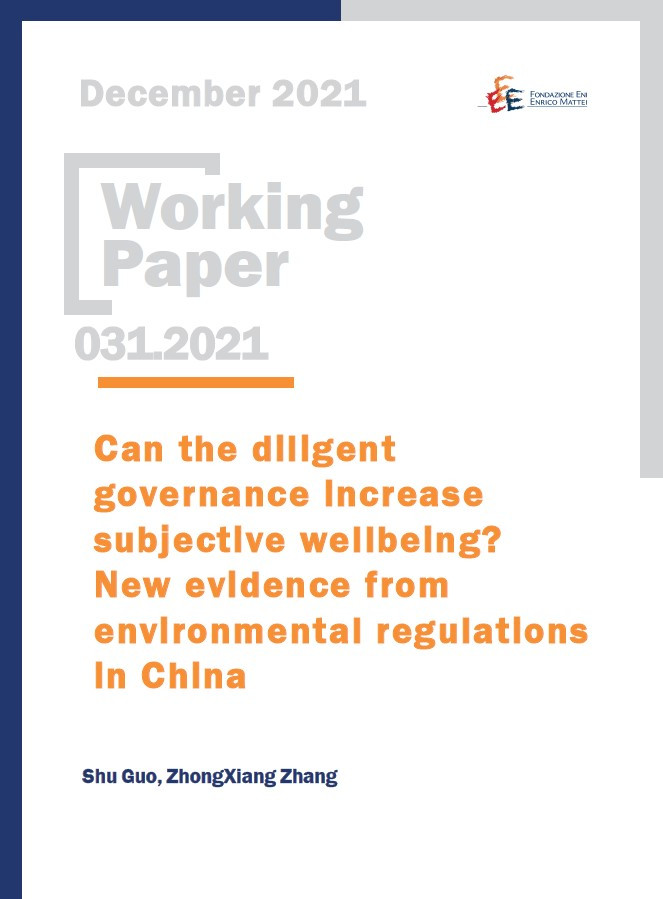Can the diligent governance increase subjective wellbeing? New evidence from environmental regulations in China

23.12.2021
Shu Guo, Tianjin University; ZhongXiang Zhang, China Academy of Energy
Q53, Q56, O13, R11, P28, H11
Subjective wellbeing, Environmental regulations, Heterogeneity, Balanced Panel Data, China
With the pearance of “wellbeing stagnation”, the Chinese government has gradually realized the negative impact of increasingly severe environmental problem on people’s wellbeing, and has then has formulated a series of environmental policies. Based on the balanced panel data from2014 to 2018 from China Family Panel Studies (CFPS)and by means of the fixed effects model, we analyze the relationships between heterogeneous environmental regulations (ERs) and subjective wellbeing (SWB) from the perspective of diligent governance. Our results show that command-control environmental regulation (CER) and voluntary environmental regulation (VER)have positive effects on SWB, but there existthe heterogeneity effects in the links between ERs and SWB. Vulnerable populations, including those with rural hukou, less educated, have paidmore attention to VER, whereas the view of other groups is the opposite. Similarly, the people with low incomes or living in economically underdeveloped areas or western region, are sensitive to VER, while the others only pay attention to CER.The SWB of those with better health can be enhanced by CER, and the SWB of those with poor health are unaffected by CER and VER.Further channel analysis illustrates that CER can improve SWB by increasing people’s evaluation of the government, while VER cannot. Our results imply that the people would place more weight on environmental governance as their income rises, and can help the government institute more flexible environmental policies to improve people’s wellbeing.
***
Suggested citation: S. Guo, Z. Zhang (2021), ‘Can the diligent governance increase subjective wellbeing? New evidence from environmental regulations in China’, Nota di Lavoro 31.2021, Milano, Italy: Fondazione Eni Enrico Mattei
